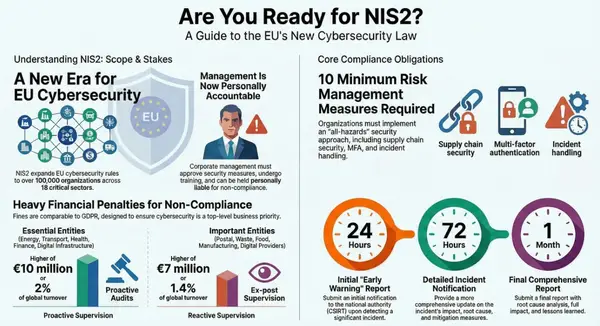The Role of CCOs in Managing Regulatory Changes in the Fintech Sector

The fintech landscape is experiencing unprecedented regulatory transformation. From the landmark GENIUS Act establishing federal stablecoin frameworks to the CFPB's new open banking rules, Chief Compliance Officers in fintech companies face a regulatory environment that's evolving at breakneck speed. Success in this dynamic sector requires CCOs who can anticipate change, build adaptive compliance frameworks, and turn regulatory requirements into competitive advantages.
The role of the fintech CCO has fundamentally evolved from a traditional compliance overseer to a strategic navigator steering companies through complex, multi-jurisdictional regulatory waters. Hiring a Chief Compliance Officer (CCO) is essential for fintech startups due to the highly regulated nature of the financial services industry. But today's fintech CCOs must do far more than ensure basic compliance—they must architect resilient systems that can adapt to rapid regulatory shifts while enabling continued innovation.
The 2025 Regulatory Revolution
The regulatory landscape for fintech has undergone dramatic transformation in 2025, creating both opportunities and challenges for compliance leaders. The new US administration promises a new approach to regulating digital and crypto assets, as well as AI, fundamentally reshaping the compliance environment.

Key Regulatory Milestones Defining 2025:
- GENIUS Act: On July 18, 2025, President Trump signed the historic GENIUS Act into law, which creates the first-ever Federal regulatory framework for stablecoins.
- CLARITY Act: Transfers jurisdiction over digital assets from the SEC to the CFTC, establishing clearer rules for crypto exchanges and dealers
- Open Banking Rules: On October 22, 2024, the Consumer Financial Protection Bureau (CFPB) issued a final rule implementing the requirements of sections 1033(a) and (b) of the Dodd-Frank Wall Street Act, fundamentally changing data sharing requirements
- Anti-CBDC Legislation: Prohibiting the establishment, issuance, circulation, and use of a CBDC within the jurisdiction of the United States
These changes represent more than incremental updates—they signal a fundamental shift toward regulatory clarity that fintech CCOs must navigate strategically.
The Evolving CCO Role in Fintech
From Compliance Officer to Strategic Partner
According to Deloitte, smaller fintechs, with less than $5 billion in annual revenue, are less likely to have a designated CCO (64% for small fintechs compared to 84% for larger financial institutions. However, those that do invest in compliance leadership gain significant competitive advantages.
Modern Fintech CCO Responsibilities Include:
- Regulatory Intelligence: Stay current with all regulatory changes and update the company's compliance programs and policies accordingly. The regulatory landscape in the financial industry is fluid and constantly evolving.
- Strategic Planning: Integrating compliance considerations into product development and market expansion strategies
- Cross-Functional Leadership: Working directly with engineering, product, and business teams to embed compliance into technology architecture
- Stakeholder Management: Act as the first point of contact for regulators and ensures the company is well-prepared for regulatory exams.
The Unique Fintech Compliance Challenge
In a leaner fintech, you frequently find yourself rolling up your sleeves to complete compliance tasks. Your activities will include developing operational workflows for a regulatory change, negotiating with technology providers, and working on responses to regulatory information requests
Unlike traditional financial institutions, fintech CCOs must navigate:
Multi-Jurisdictional Complexity: Fintech businesses face unique challenges because they often operate at the intersection of multiple regulated sectors, including banking, securities, insurance, and payments. This convergence means companies may need to comply with regulations from several different regulatory authorities simultaneously, creating complex compliance matrices.
Technology Integration: In a digital business environment such as fintech, CCOs with prior experience at more traditional financial services firms can face a steep learning curve. You have to become conversant with all of the technology that supports your firm's business model, as well as areas such as digital document management, digital records retention, data protection and cybersecurity.
Pace of Innovation: Ensuring compliance frameworks keep pace with rapid product development cycles and emerging technologies.

Critical Regulatory Areas for Fintech CCOs
Digital Assets and Cryptocurrency Compliance
The crypto regulatory landscape has experienced seismic shifts in 2025. The FDIC has not yet taken any official action on reputational risk, but Acting Chairman Hill stated in a March 24, 2025, letter to Dan Meuser, Chairman of the Subcommittee on Oversight and Investigations of the House Committee on Financial Services, that the FDIC has "conducted a review of all mentions of reputational risk or similar terms in [its] regulations, guidance, examination manuals, and other policy documents, resulting in a lengthy inventory, with plans to eradicate this concept from [the FDIC's] regulatory approach."
Key Focus Areas:
- Stablecoin compliance under the new GENIUS Act framework
- Digital asset custody requirements and SAB 122 implications
- Anti-money laundering controls for crypto transactions
- Classification and regulatory treatment of different digital assets
Open Banking and Data Sharing
The accelerated adoption of open banking is primarily driven by increased business offerings, growing consumer usage, and regulatory harmonization, addressing the demand for transparency and control in financial services.
CCO Implementation Priorities:
- API security and data protection protocols
- Third-party vendor management and risk assessment
- Consumer consent and data usage transparency
- Contracts with third-party service providers should clearly outline data privacy obligations, permissible uses of consumer data, and security requirements. Continuous monitoring of vendor compliance will also be necessary to avoid potential liability for breaches or misuse of consumer data.
Artificial Intelligence Governance
AI integration in fintech services introduces new compliance challenges requiring CCO attention:
- Algorithmic bias prevention and fair lending compliance
- Model risk management and validation frameworks
- Explainability requirements for automated decision-making
- Data governance for machine learning training datasets
Building Adaptive Compliance Frameworks
Technology-First Compliance Architecture
Building controls into the architecture from day one turns regulation from a bottleneck into a license to expand. Successful fintech CCOs embed compliance directly into technology infrastructure:
Key Components:
- Automated Monitoring: Real-time transaction monitoring and suspicious activity detection
- API-Based Controls: Compliance checks integrated into application programming interfaces
- Data Governance: microservice architecture in React, Node.js, and TypeScript; proprietary algorithm for personalised property-buying plans; modules (mortgage calculator, deposit builder) available as white-label services.
- Audit Trails: Immutable compliance logging and documentation systems
Risk-Based Approach to Regulatory Change
Clear ownership convinces regulators the plan works in practice, not just on paper. Each role guards a distinct slice of risk, so compliance in fintech becomes a habit.
Organizational Structure for Compliance:
- Chief Compliance Officer: Owns the entire framework, signs off policy updates, and speaks for the firm during regulator meetings
- Legal Counsel: Tracks new fintech regulatory technology and compliance mandates, drafts contract clauses, and validates rule logic in product flows
- Engineering Lead: Embeds controls in code, maintains immutable audit logs, and enforces least-privilege access
- Product Manager: Aligns release cycles with compliance milestones, allocates sprint time for control reviews, and gathers usage metrics for continuous improvement
Managing Regulatory Relationships
Proactive Regulator Engagement
Regulatory sandboxes, pioneered by the UK's Financial Conduct Authority (FCA), allow fintech companies to test innovative products with relaxed regulatory requirements. CCOs should leverage these opportunities to build relationships and gain regulatory clarity before full market launch.
Best Practices for Regulator Relations:
- Early engagement on novel product features or business models
- Transparent communication about compliance challenges and solutions
- Participation in industry working groups and regulatory consultations
- Documentation of good faith compliance efforts
Cross-Border Compliance Coordination
Each country sets its own compliance rules, timelines, and approval steps. A product that works in Europe may require a different onboarding flow in India or new disclosures in Brazil. Even the same fintech regulation, like KYC, can mean different ID checks, document types, or review procedures.
Personal Liability and Risk Management
The compliance landscape for fintech CCOs includes increasing personal liability risks. Given the increasing complexity of the regulatory environment and the number of regulations implemented or approved by the SEC in recent years, the agency's lack of a CCO personal liability framework has emerged as a key source of concern for compliance officers, CEOs, and other C-suite executives.
Risk Mitigation Strategies:
- Comprehensive documentation of compliance decisions and rationale
- Board-level reporting on compliance program effectiveness
- Professional liability insurance and legal counsel coordination
- Clear escalation procedures for regulatory issues
Future-Proofing Compliance Programs
Emerging Technology Considerations
AI integration and other advanced technologies make fintech companies attractive acquisition targets, and consolidation is anticipated as firms seek to navigate regulatory pressures.
Areas Requiring CCO Focus:
- Digital Identity Verification: Industry-led projects, such as Visa's Payment Passkey Service, are piloting new digital identity enabling customers to use the biometrics for payment authentication.
- Tokenization and DeFi: Compliance frameworks for decentralized finance protocols
- Real-Time Payments: Real-time payments allow transactions to be processed instantly between accounts, providing unparalleled convenience for users.
- Embedded Finance: Compliance considerations for bank-fintech partnerships
Building Compliance as a Competitive Advantage
The old strategy of launching first and handling compliance later no longer works. Today, regulators expect companies to plan. That means building compliance into product teams, setting up documentation early, and proving control long before expansion.
Strategic Compliance Approaches:
- Compliance-by-Design: Integrating regulatory requirements into product development from inception
- Regulatory Monitoring: Automated systems for tracking regulatory changes across jurisdictions
- Stakeholder Education: Training programs for all employees on compliance requirements
- Continuous Improvement: Regular assessment and updating of compliance frameworks
The CCO as Innovation Enabler
Balancing Innovation and Compliance
The most successful fintech CCOs view regulation not as a constraint but as a framework for sustainable innovation. Recent regulatory and industry developments suggest the future of fintech will see a potential blurring of the lines: Some fintechs are considering or pursuing bank charters, enabling them to compete more broadly and to avoid having to address disparate regulatory requirements across individual states where they conduct business.
Innovation-Enabling Compliance Strategies:
- Regulatory Interpretation: Providing clear guidance on how new regulations apply to innovative products
- Pilot Programs: Designing compliant testing frameworks for new features
- Stakeholder Coordination: Facilitating discussions between development teams and regulatory affairs
- Market Expansion: Enabling geographic expansion through comprehensive compliance frameworks
Outsourced vs. In-House Compliance
Outsourced compliance for a fintech involves contracting with external experts or service providers like InnReg to manage specific functions or responsibilities on behalf of your fintech. Many fintechs begin with outsourced compliance before building internal capabilities.
Considerations for Compliance Structure:
- Scale and Resources: Internal capability vs. outsourced expertise
- Regulatory Complexity: Specialized knowledge requirements
- Growth Stage: Evolving needs as the company scales
- Cost-Effectiveness: Resource allocation and budgetary considerations
Conclusion: The Strategic Imperative
The role of CCOs in fintech has evolved from reactive compliance oversight to proactive strategic leadership. With a quarter of FDIC enforcement actions targeting sponsor banks in 2024 and Synapse's high-profile collapse revealing serious risks, embedded finance partnerships face a pivotal moment. The stakes have never been higher, but neither have the opportunities.
Key Success Factors for Fintech CCOs:
- Anticipatory Approach: Building compliance frameworks that can adapt to future regulatory changes
- Technology Integration: Embedding compliance into the core technology architecture
- Cross-Functional Leadership: Serving as a bridge between compliance, technology, and business teams
- Regulatory Relationships: Maintaining proactive engagement with regulators and industry peers
- Strategic Vision: Viewing compliance as an enabler of sustainable growth and competitive advantage
The CCOs who will thrive in the evolving fintech landscape are those who can master the art of regulatory navigation while enabling continued innovation. 2025 will be pivotal because we're witnessing the crypto economy moving from the fringes to becoming an integral part of mainstream financial services, driving both innovation and the need for robust compliance.
As the regulatory environment continues to evolve, the most successful fintech companies will be those with CCOs who can turn regulatory complexity into competitive advantage—building trust with consumers, confidence with regulators, and value for stakeholders through excellence in compliance leadership.
In the rapidly evolving fintech sector, CCOs are not just compliance guardians—they are the architects of sustainable innovation, building bridges between regulatory requirements and business objectives that enable long-term success in an increasingly regulated industry.







